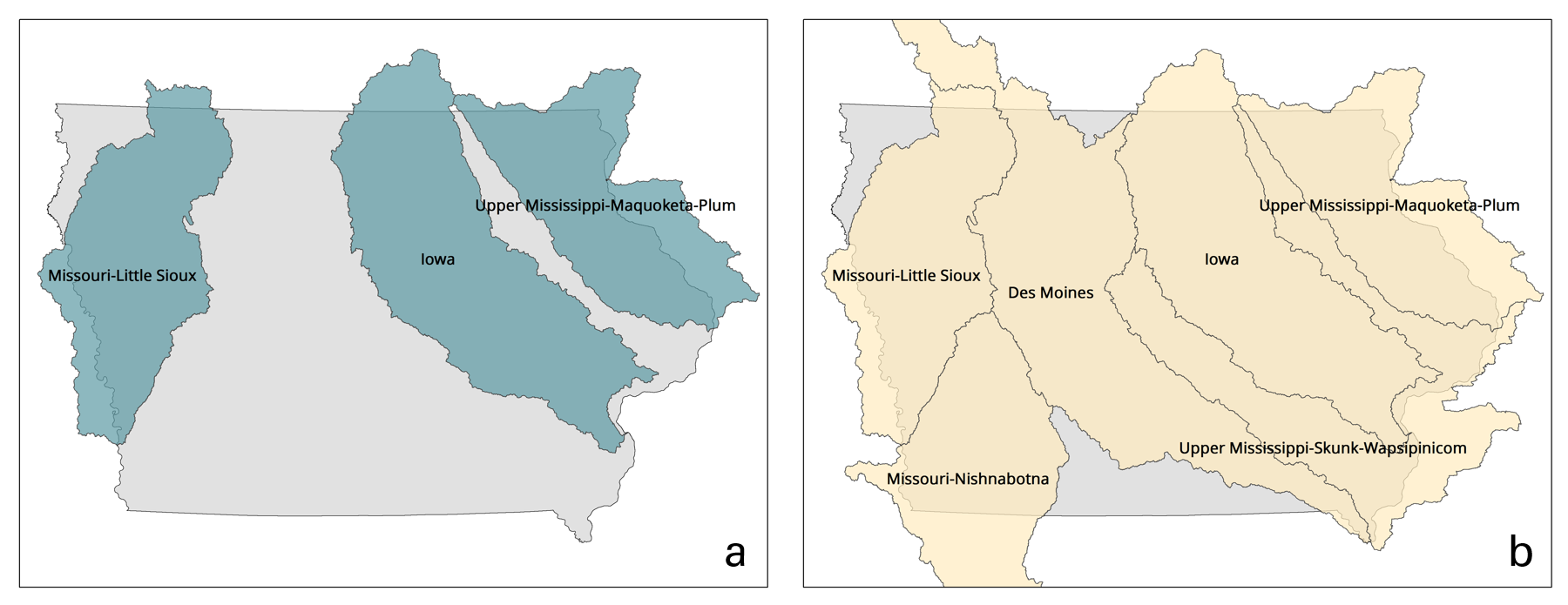Post written by Laurie Nowatzke and J. Arbuckle
The Iowa Nutrient Reduction Strategy (NRS) aims to reduce Iowa agriculture’s nitrogen loss and phosphorus loss by 42 and 29 percent, respectively. A major component of the NRS is to encourage the voluntary adoption of conservation practices on Iowa farms. Practices that can reduce nitrogen and phosphorus loss include cover crops, nitrogen management, and perennial vegetation, among others.
Decision and behavioral theory generally view awareness of a problematic situation and attitudes toward potential solutions as important predictors of behavior change. In tracking progress toward achieving NRS goals, we ask the questions: “What are farmers’ knowledge of and attitudes toward the NRS?” and, “How do these factors affect the use of conservation practices?”
Iowa State University Extension and Outreach, with support from the Iowa Department of Agriculture and Land Stewardship, is conducting a five-year survey of farmers to help track the progress of the Iowa Nutrient Reduction Strategy by examining trends in farmers’ knowledge, attitudes, and behaviors related to nutrient loss reduction. At the Iowa Water Conference on March 20, 2018, in Ames, we will present analysis and highlights from the first three years (2015-2017) of the survey.
Following an innovative “semi-longitudinal” structure, the project surveys two HUC6 watershed each year; one that was surveyed during the previous year, and one new one. Thus, each HUC6 watersheds is surveyed two years in a row to allow measurement of changes in farmers’ knowledge, attitudes, and conservation practice use. A sample of farmers in the Iowa HUC6 is surveyed every year. By the end of the five-year survey, the majority of the state will have been surveyed, and two years of data will be available for all major HUC6 watersheds in Iowa (Figure 1b).

With three years of the annual sampled watershed (the Iowa HUC6) completed, and with two consecutive years surveyed in two other HUC6 watershed, our presentation at the Iowa Water Conference will present trends over time in each of those watershed areas (Figure 1a). The presentation will examine trends in the following survey variables:
- Knowledge and awareness of the NRS
- Information sources where farmers learned about the NRS
- Attitudes toward the NRS and related activities
- Concerns about agriculture’s impacts on water quality
- Involvement in watershed groups
- Use of conservation practices, including cover crops, springtime nitrogen application, and no-till
- Use of cost-share funding and technical assistance for conservation practices
Laurie Nowatzke is the Measurement Coordinator for the Iowa Nutrient Reduction Strategy, in Iowa State University’s College of Agriculture & Life Sciences. She has a MA in International Relations & Environmental Policy from Boston University, and a BS from Wright State University. She is currently pursuing a PhD in Sociology at Iowa State University.
J. Gordon Arbuckle Jr. is associate professor and extension sociologist at Iowa State University. His research and extension efforts focus on improving the environmental and social performance of agricultural systems. His primary areas of interest are drivers of farmer and agricultural stakeholder decision making and action related to soil and water quality. He is director of the Iowa Farm and Rural Life Poll, an annual survey of Iowa farmers.